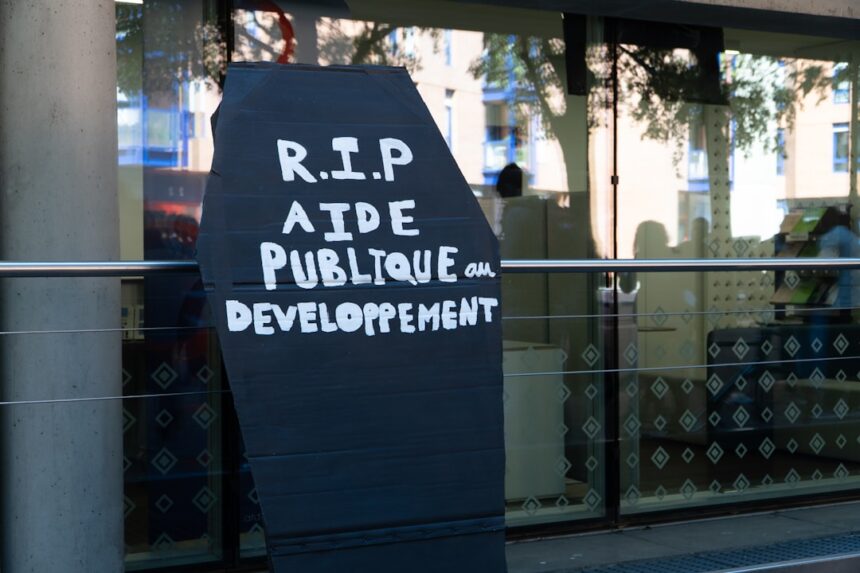In a world that often feels chaotic and unpredictable, the desire for control is a natural human instinct. You may find yourself clinging to the belief that you can shape your destiny through sheer willpower and positive thinking. This illusion of control can be comforting, providing a sense of agency in an otherwise uncertain environment.
However, it can also lead to disillusionment when reality doesn’t align with your expectations. You might invest time and energy into manifesting your dreams, only to face setbacks that leave you questioning your abilities and worth. The truth is that while you can influence certain aspects of your life, many factors remain beyond your control.
External circumstances, societal structures, and even the actions of others can significantly impact your journey. Acknowledging this reality doesn’t mean surrendering to fate; rather, it invites you to adopt a more nuanced perspective. Embracing the unpredictability of life can empower you to adapt and grow, rather than becoming trapped in the cycle of frustration that often accompanies the illusion of control.
Key Takeaways
- The Illusion of Control: Recognize that not everything is within your control and it’s okay to let go of the need to control every aspect of your life.
- The Pressure to Always Stay Positive: Understand that it’s normal to experience a range of emotions and it’s important to embrace and process them rather than constantly striving to maintain a facade of positivity.
- The Overemphasis on Material Wealth: Shift the focus from material wealth to holistic well-being, including mental and emotional health, relationships, and personal growth.
- The Disregard for Mental Health: Prioritize mental health and seek professional help when needed, rather than dismissing or ignoring the importance of mental well-being.
- The Blame Game: Victim-Blaming and Manifestation: Avoid victim-blaming and recognize that external circumstances and systemic barriers can significantly impact an individual’s life, rather than attributing everything to personal manifestation.
The Pressure to Always Stay Positive
In today’s society, there is an overwhelming expectation to maintain a positive outlook at all times. You may feel pressured to put on a brave face, even when you’re grappling with challenges or negative emotions. This relentless push for positivity can create an internal conflict, as you struggle to reconcile your authentic feelings with the façade of happiness that others expect from you.
The pressure to stay upbeat can lead to emotional suppression, where you deny or ignore your struggles in favor of a more palatable narrative. This culture of forced positivity can be detrimental to your mental well-being. It may prevent you from processing your emotions in a healthy way, leading to increased stress and anxiety.
You might find yourself feeling isolated, as if you’re the only one experiencing difficulties while everyone else seems to thrive effortlessly. Recognizing that it’s okay to feel sad, angry, or overwhelmed is crucial for your emotional health. Allowing yourself to experience the full spectrum of human emotions can lead to deeper self-awareness and ultimately foster genuine resilience.
The Overemphasis on Material Wealth

In a consumer-driven society, material wealth is often equated with success and happiness. You may find yourself bombarded with messages that suggest accumulating possessions will lead to fulfillment and contentment. This overemphasis on material wealth can create a never-ending cycle of desire, where you constantly chase after the next big purchase or status symbol in hopes of achieving happiness.
However, this pursuit can leave you feeling empty and unfulfilled, as true satisfaction often lies beyond material possessions. Moreover, the fixation on wealth can distort your values and priorities. You might begin to measure your self-worth based on what you own rather than who you are as a person.
This mindset can lead to unhealthy competition with others and a sense of inadequacy when comparing your life to those who appear more affluent. It’s essential to shift your focus from material accumulation to cultivating meaningful relationships and experiences that enrich your life in more profound ways.
The Disregard for Mental Health
| Category | Statistics |
|---|---|
| Prevalence | 1 in 5 adults experience mental illness each year |
| Impact | 56% of American adults with mental illness do not receive treatment |
| Stigma | Only 41% of adults with mental health conditions received mental health services in the past year |
| Consequences | Untreated mental illness can lead to increased risk of chronic medical conditions |
Despite growing awareness around mental health issues, there remains a significant stigma attached to seeking help or acknowledging struggles. You may feel hesitant to discuss your mental health challenges due to fear of judgment or misunderstanding from others. This disregard for mental health can perpetuate feelings of isolation and shame, making it difficult for you to reach out for support when you need it most.
The societal narrative often prioritizes physical health while neglecting the importance of mental well-being.
It’s essential to understand that seeking help is not a sign of weakness but rather an act of courage and self-care.
Engaging in open conversations about mental health can help dismantle the stigma surrounding it, creating a more supportive environment for everyone. By prioritizing your mental health and encouraging others to do the same, you contribute to a culture that values emotional well-being as much as physical health.
The Blame Game: Victim-Blaming and Manifestation
In the realm of personal development and manifestation, there exists a troubling tendency to blame individuals for their circumstances. You may encounter narratives that suggest if you’re not achieving your goals, it’s due to a lack of belief or effort on your part. This victim-blaming mentality can be incredibly harmful, as it overlooks the complexities of individual experiences and the myriad factors that contribute to success or failure.
It places an undue burden on you, suggesting that if only you thought positively enough or worked harder, you could change your situation. This mindset not only fosters guilt but also detracts from the importance of understanding systemic barriers that may be at play. It’s essential to recognize that while personal responsibility is important, it exists within a broader context that includes social, economic, and cultural influences.
Shifting the focus from blame to understanding can empower you to take constructive action while also acknowledging the challenges that may be outside your control.
The Ignorance of Systemic Barriers

When discussing personal growth and success, it’s crucial to acknowledge the systemic barriers that many individuals face. You may find yourself in environments where opportunities are limited due to factors such as socioeconomic status, race, gender, or disability. Ignoring these barriers perpetuates a narrative that success is solely a result of individual effort, which can be misleading and harmful.
Recognizing these systemic issues is essential for fostering empathy and understanding within communities. By acknowledging the challenges posed by systemic barriers, you can better appreciate the diverse experiences of others and advocate for change. This awareness allows you to approach personal growth with a more inclusive mindset, recognizing that everyone’s journey is unique and influenced by various external factors.
Embracing this perspective not only enriches your understanding but also encourages collective action toward creating a more equitable society.
The Toxic Culture of Comparison
In an age dominated by social media, comparison has become an all-too-common experience for many individuals. You may find yourself scrolling through curated images and success stories, leading to feelings of inadequacy or envy regarding your own life. This toxic culture of comparison can distort your self-image and create unrealistic expectations about what success should look like.
It’s easy to forget that what you see online often represents only a fraction of reality. The constant comparison can lead to detrimental effects on your mental health, fostering feelings of low self-esteem and dissatisfaction with your own achievements. It’s important to remember that everyone has their own unique journey filled with ups and downs.
Instead of measuring your worth against others, focus on celebrating your progress and setting personal goals that align with your values and aspirations. Cultivating self-compassion can help you break free from the cycle of comparison and embrace your individuality.
The Manipulation of Vulnerable Individuals
In the pursuit of personal growth and manifestation, some individuals exploit the vulnerabilities of others for their gain. You may encounter self-proclaimed gurus or coaches who promise quick fixes or miraculous transformations in exchange for money or loyalty. This manipulation preys on those who are seeking guidance or support during difficult times, often leading them down a path of disillusionment and financial strain.
It’s essential to approach personal development with discernment and critical thinking. While seeking guidance can be beneficial, it’s crucial to evaluate the credibility and intentions of those offering support. Empowering yourself with knowledge and fostering a sense of agency in your personal growth journey can help protect you from manipulation.
Surrounding yourself with genuine mentors who prioritize your well-being over profit is key to fostering a healthy approach to self-improvement.
The Disconnection from Reality
The allure of manifestation often leads individuals into a realm where reality becomes distorted by wishful thinking. You may find yourself caught up in the belief that simply visualizing your desires will bring them into existence without taking tangible steps toward achieving them. This disconnection from reality can create a false sense of security, leading you to neglect practical actions necessary for success.
Acknowledging the hard work required to achieve your goals is essential for maintaining motivation and resilience in the face of challenges. By grounding your aspirations in reality, you empower yourself to take actionable steps toward creating the life you envision while remaining open to unexpected opportunities along the way.
The Cult-Like Mentality of Manifestation Communities
Within certain manifestation communities, there exists a cult-like mentality that discourages critical thinking and promotes blind faith in specific ideologies or practices. You may encounter groups that emphasize unwavering belief in manifestation techniques while dismissing any skepticism as negativity or lack of faith. This environment can create an echo chamber where dissenting opinions are silenced, leading individuals further away from rational discourse.
It’s important to approach any community with a discerning mindset, recognizing the value of diverse perspectives while remaining true to your own beliefs and experiences. Engaging in open dialogue about manifestation practices can foster growth and understanding while preventing dogmatic thinking from taking root. By cultivating an environment where questioning is encouraged rather than shunned, you contribute to a healthier discourse around personal development.
The Need for a Balanced Approach to Personal Growth
Ultimately, personal growth requires a balanced approach that integrates various aspects of life—mental health, emotional well-being, practical action, and self-compassion. You may find that embracing both positive thinking and realistic planning allows you to navigate challenges more effectively while remaining open to growth opportunities. Acknowledging the complexities of life enables you to cultivate resilience without falling prey to harmful narratives or unrealistic expectations.
By prioritizing balance in your personal development journey, you empower yourself to pursue meaningful goals while remaining grounded in reality. Embracing vulnerability and authenticity fosters deeper connections with yourself and others, creating a supportive environment for growth. As you navigate this journey, remember that true fulfillment comes not from chasing perfection but from embracing the beautiful messiness of life itself.
Manifestation is often discussed in the context of positive thinking and the law of attraction, but many psychologists argue that this perspective can be misleading and may even be detrimental to mental health. A related article that delves into the psychological aspects of manifestation and its potential pitfalls can be found at this link. It explores how the belief in manifestation can sometimes lead to unrealistic expectations and a lack of accountability for one’s actions, ultimately suggesting that a more grounded approach to personal growth may be more beneficial.
Manifestation is BROKEN (The Dark Psychology of Toxic Positivity)
FAQs
What is manifestation?
Manifestation is the belief that you can attract into your life the things you desire through positive thinking, visualization, and belief in the law of attraction.
What is broken psychology in manifestation?
Broken psychology in manifestation refers to the idea that some individuals may struggle to manifest their desires due to underlying psychological issues, limiting beliefs, or unresolved emotional trauma.
How does broken psychology affect manifestation?
Broken psychology can affect manifestation by creating barriers such as self-doubt, negative self-talk, and a lack of belief in one’s ability to attract what they desire. These psychological factors can hinder the manifestation process.
What are some signs of broken psychology in manifestation?
Signs of broken psychology in manifestation may include persistent negative thoughts, feelings of unworthiness, difficulty in maintaining a positive mindset, and a pattern of self-sabotage when trying to manifest desires.
Can broken psychology be addressed in manifestation?
Yes, broken psychology can be addressed in manifestation through various methods such as therapy, self-reflection, mindfulness practices, and reprogramming limiting beliefs. Seeking professional help can also be beneficial in addressing underlying psychological issues.




